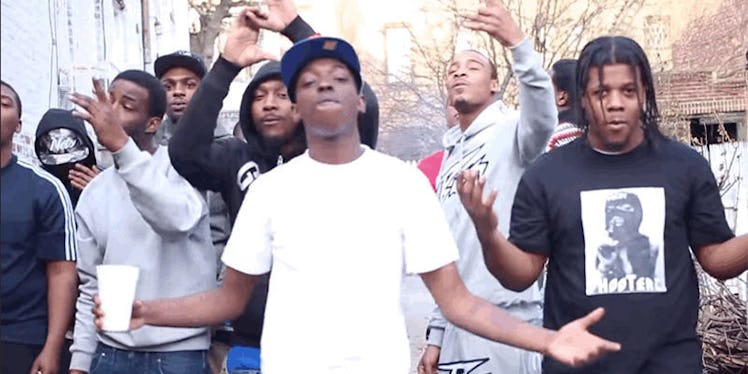
To End Violence In Hip-Hop Culture, First We Need To Understand It
When I think about hip-hop, I think about a dynamic cultural movement filled with politically-incorrect lyrics geared toward social justice.
I think of the artists who dared to make a statement in their style of dress, dancing and lyrical content, focused on “sticking it to the man,” so to speak.
When I think about hip-hop, I think about a rich culture from a disenfranchised people, longing to evoke change in their communities and the world around them.
Unfortunately, how most people remember hip-hop may be distorted through the prevalence of violence in the hip-hop culture, whether heard in lyrics, seen from artists or in the media’s representation of artist beef.
Violence in the hip-hop culture needs to cease, as it has threatened or taken the lives of artists, continues to damage a rich history and is counterproductive to the foundation set from early hip-hop artists.
We have a problem when the idea of hip-hop culture is flooded with images of black male braggadocio and gangster rap, specifically lyrics about crooked cops or the lack of respect for police, hypersexuality and the degradation of women.
Seldom are someone’s initial thoughts a poverty-stricken Bronx area, desperate for a movement that will allow the younger generation to express itself creatively.
Seldom do we think of hip-hop as a voice for marginalized youth, or a culture that reflects the social, economic and political realities of their communities.
Some young adults may only remember gangster rap in the 1990s, in regard to the emergence of the hip-hop movement.
While the rise of gangster rap, which included artists such as NWA, Ice T and Death Row Records artists, similarly spoke to major social and political issues of that time (particularly police brutality), the hip-hop movement had well over a decade of the history and artistry before such an image of hyper-masculinity emerged.
Skipping over the beginnings of that set the foundation for hip-hop to cause a skewed understanding of why the hip-hop movement began.
Historically, from the days of slavery to the rise of the Harlem Renaissance and throughout the Civil Rights movement of the 60s, music and the lyrics expressed were used in marginalized communities (primarily black communities) to narrate experiences and commemorate social conflict and political injustice.
Hip-hop was no different.
The disenfranchisement of blacks and Latinos was a major issue, but particularly in the Bronx during the mid- to late-70s. Out of this tension, a new musical style, referred to as hip-hop, became popular among youth.
Hip-hop created a new culture, and the movement became the voice to express the frustration of disenfranchised youth.
Growing up, I was accustomed to many hip-hop anthems that spoke against the prevalence of violence within the black community and the nation at large.
This includes Queen Latifah’s "U.N.I.T.Y," the song with the famous question, “Who you calling a bitch?” She demanded the respect of men in a male-dominated industry, and it won her a Grammy for best rap solo performance in 1995.
Slick Rick’s "Hey Young World" was a message to the young generation encouraging youth to take his advice in order to overcome social and economic struggles.
After a fan was killed during a Boogie Down Production and Public Enemy concert in 1988, a group of MCs came together to form the Stop the Violence Movement and recorded "Self Destruction."
Public Enemy’s 1990 hit, "Fight the Power," promotes a sense of black consciousness and unity, similar to the teachings of Marcus Garvey, the man considered to be the grandfather of the Black Panther movement.
Many lyrical pleas from hip-hop were presented in a way of telling young people to “wake up” and take notice of the violence they are committing against each other, and the systematic racial injustice.
Hip-hop demanded respect, appreciation and freedom of expression. But is that what is widely remembered, or will be remembered for future generations?
Music, hip-hop in particular, can be used as sort of an audio yearbook for future generations to gain knowledge and understanding of the social struggles that plagued specific time periods.
While not all music accomplishes this, even within hip-hop, there are many artists who have managed to embrace this form of art by creating more than just catchy melodies about turning up, getting drunk and passing out in their music. In fact, some artists are adamant about rejecting that culture.
In the midst of continued injustice in our society and the ever-growing popularity of hip-hop, the need for hip-hop artists to return to the foundation of the movement and come together to use their music as a platform to express racial, social and economic injustice and promote social change is imperative.